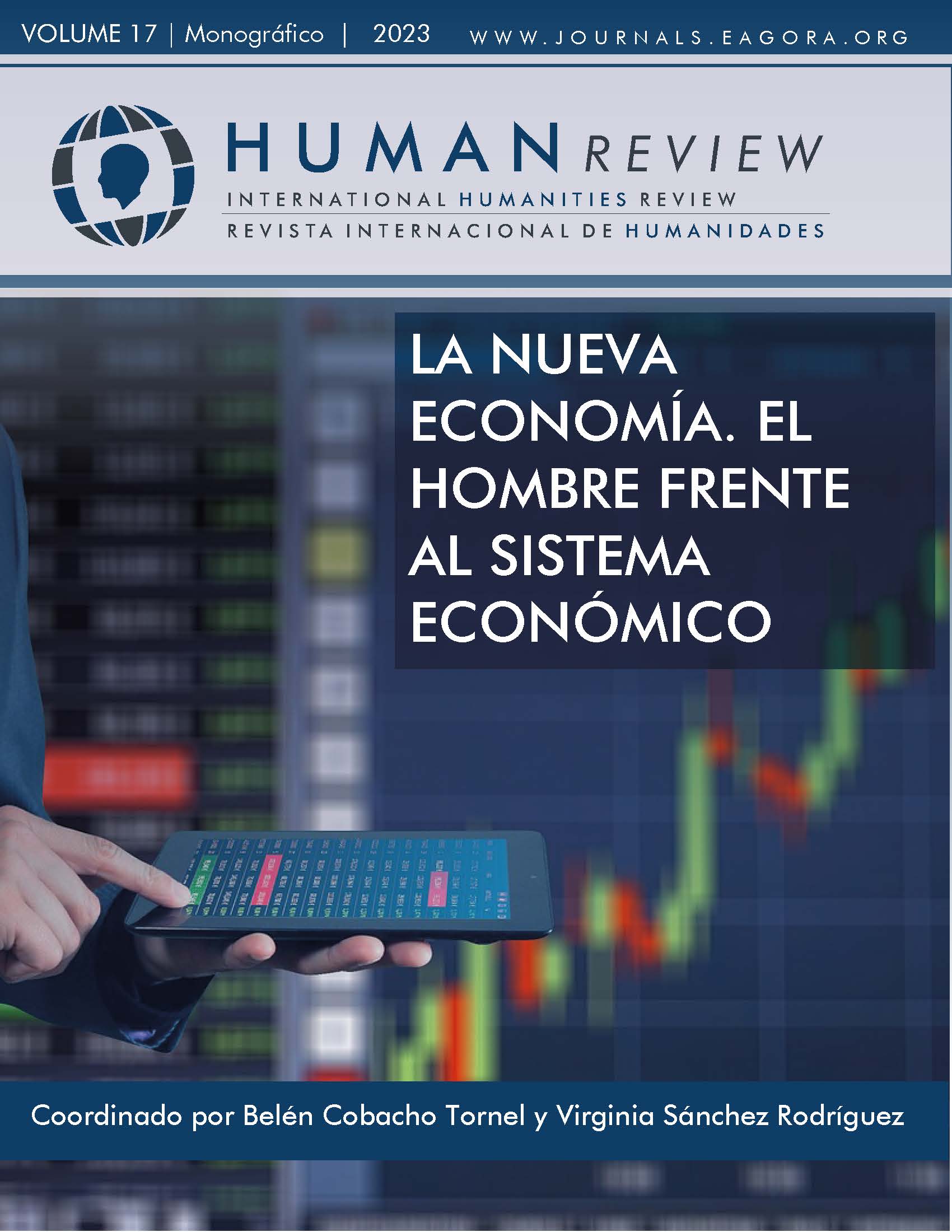Modern inequalities generated by new forms of financial service delivery
DOI:
https://doi.org/10.37467/revhuman.v12.4737Keywords:
FinTech, Inequalities, Financial inclusion, Financial literacy, Financial services, Banking, Social impactAbstract
The FinTech phenomenon has revolutionised the way financial services are provided and transformed the relationship between the provider of these services and the consumer, with digital platforms and apps being the means through which the consumer has come to relate to his or her financial services provider. The banking sector needs to adapt quickly and urgently to the new reality. The profile of the financial services consumer has changed and the more digital and technological the financial services providers become; new social inequalities arise. We propose to analyse which inequalities have been generated and what the current social impacts are.
References
Aduda, J., & Kalunda, E. (2012). Financial Inclusion and Financial Sector Stability with Reference to Kenya: A Review of Literature. Journal of Applied Finance & Banking, 2(6), 1792-6599. http://www.scienpress.com/Upload/JAFB/Vol%202_6_8.pdf
Allen, F., Carletti, E., Cull, R., Qian, J. Q., Senbet, L., & Valenzuela, P. (2014). The African Financial Development and Financial Inclusion Gaps. Journal of African Economies, 23(5), 614-642. https://doi.org/10.1093/jae/eju015 DOI: https://doi.org/10.1093/jae/eju015
Arun, T., & Kamath, R. (2015). Financial inclusion: Policies and practices. IIMB Management Review, 27(4), 267-287. https://doi.org/10.1016/j.iimb.2015.09.004 DOI: https://doi.org/10.1016/j.iimb.2015.09.004
Azar, K., Lara, E., & Mejía, D. (2018). Inclusión Financiera de las mujeres en América Latina. Situación actual y recomendaciones de política. https://scioteca.caf.com/handle/123456789/1162
Dev, S. M. (2006). Financial Inclusion: Issues and Challenges. Economic and Political Weekly, 41(41), 4310-4313. www.jstor.org/stable/4418799
Fungáčová, Z., & Weill, L. (2015). Understanding financial inclusion in China. China Economic Review, 34, 196-206. https://doi.org/10.1016/j.chieco.2014.12.004 DOI: https://doi.org/10.1016/j.chieco.2014.12.004
Grohmann, A., Klühs, T., & Menkhoff, L. (2018). Does financial literacy improve financial inclusion? Cross country evidence. World Development, 111, 84-96. https://doi.org/10.1016/j.worlddev.2018.06.020 DOI: https://doi.org/10.1016/j.worlddev.2018.06.020
Le, T. H., Chuc, A. T., & Taghizadeh-Hesary, F. (2019). Financial inclusion and its impact on financial efficiency and sustainability: Empirical evidence from Asia. Borsa Istanbul Review, 19(4). https://doi.org/10.1016/j.bir.2019.07.002 DOI: https://doi.org/10.1016/j.bir.2019.07.002
Mohan, R. (2006). November Reserve Bank of India Bulletin 2006. Economic Growth, Financial Deepening and Financial Inclusion*. www.rakeshmohan.com/docs/RBIBulletinNov2006-2.pdf
Ozili, P. K. (2020). Theories of Financial Inclusion. Uncertainty and Challenges in Contemporary Economic Behaviour, 89-115. https://doi.org/10.1108/978-1-80043-095-220201008 DOI: https://doi.org/10.1108/978-1-80043-095-220201008
Ranjani, K. S., & Bapat, V. (2015). Deepening Financial Inclusion Beyond Account Opening: Road Ahead for Banks. Business Perspectives and Research, 3(1), 52-65. https://doi.org/10.1177/2278533714551864 DOI: https://doi.org/10.1177/2278533714551864
Sela, V. M., Gonzalez, L., & Christopoulos, T. P. (2020). Construção da agenda de inclusão financeira à luz da Teoria Ator-Rede. Revista de Administração Pública, 54(1), 162-180. https://doi.org/10.1590/0034-761220180382 DOI: https://doi.org/10.1590/0034-761220180382
World Bank Group (2022). The global findex database 2021, World Bank. World Bank Group. https://www.worldbank.org/en/publication/globalfindex
Zins, A., & Weill, L. (2016). The determinants of financial inclusion in Africa. Review of Development Finance, 6(1), 46-57. https://doi.org/10.1016/j.rdf.2016.05.001 DOI: https://doi.org/10.1016/j.rdf.2016.05.001
Downloads
Published
How to Cite
Issue
Section
License
Those authors who publish in this journal accept the following terms:
- Authors will keep the moral right of the work and they will transfer the commercial rights.
- After 1 year from publication, the work shall thereafter be open access online on our website, but will retain copyright.
- In the event that the authors wish to assign an Creative Commons (CC) license, they may request it by writing to publishing@eagora.org









